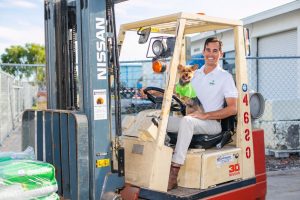Over the last 20 years in dealing with communities and board members in SWFL, we rarely find a board member who asks the correct questions to their current or potential landscape maintenance provider.
Often times a community goes out to bid and there is always those board members who scramble for the lowest number, even if it only saves each homeowner $10 a month (but costs much more in the long run).
We have seen it time and time again, low number wins, year in and year out; but how have these companies been gaming the system? These are the questions you need to ask your current or potential provider.
1. Whats your standard rate of price increase per year?
This is a crucial question, because often times the lowest bidders will lock you into a 3-5 year deal and raise your community price 4.5-5% per year. While you saved money your first year, they are going to gig you on the next few years. Companies that do not require the 4.5-5% a year increase are very hard to find because they often have such a long term relationship with their communities, therefore they are not taking on more and more accounts unlike the growth based companies that require more and more accounts to offset the ones that they lose.
2. Show me your list of up-charges

Service calls, fungicide applications, bugs on bushes? All up-charges. Ask any national lawn maintenance company and you will quickly find out that their initial number is so low because their list of items to up-charge is so long. My brother who works for a national maintenance company in the area loves to brag to me about how much commission he gets for each little up-charge service they provide. In comparison to us, when a national company bids a property, they bid it knowing that their “account manager” (sales-person) will talk the property manager into proposing to the board numerous additions that are big commission latent profit centers for the national company and the sales-person/account manager.
3. Do you use liquid fertilizer or granular? How many times a year?
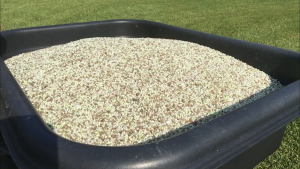
Board members are not often mindful of different types of fertilization application. If a company puts in a bid and says they fertilize the lawn “6” times a year, as a board or community member you must ask them “how many applications of those are granular?”
A big loop hole when bidding a property for these companies is that they will skip their requirement of 3-4 granular fertilizations for year on the turf and instead provide 4-6 liquid fertilizations.
When a board member sees the lowest number among the bidders have the most “fertilizations” you would think that would raise the red flag right? However what often happens is that they take this high number of fertilizations and low price as a moment of “wow look at this deal!”
Without asking this crucial question of how many granular fertilizations per year does the company do, you can end up like many other communities who have had to re-sod much of the community, only because the board members were unable to ask the correct questions to potential lawn maintenance contractor.
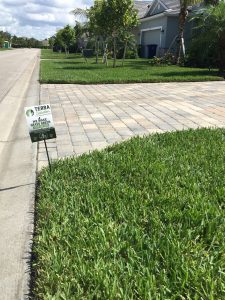
4. What is your response time for a problem?
Finding someone to respond to e-mails or phone calls is difficult in this industry because you often can’t get a hold of whomever the true decision maker is in the company. Many companies response to a call for “bugs on bushes” is the next time their maintenance crew is out there they will just cut back the bush and cut all the flowers off. I’ve won the bids at communities where the prior well-known company’s response time was 7-14 days before you had you problem addressed, if your problem gets addressed. finding a company who responds and fixes problems immediately saves money.
My favorite conversation was with an account manager for a national lawn maintenance company in a large south Naples community last year when I told him “you’ve got chinch bugs on your property you better spray that!” He replied the only way a salesman could “I’m going to tell the property manager we have to re-sod it, I get a good commission on re-sods” 2 weeks later they re-sodded that area plus about 20 feet all the way around, I’m happy for the guy that he received his commission, but in economics we call that perverted incentives! When their are no incentives to be pro-active, the community loses.
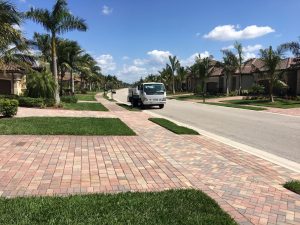
5. What are the closest 3 communities you service?
Sell sell sell is the tactic for many of these salesman that do the bid, but they never want you to know what other communities they do and what their other communities look like. Being proud of the work you do, as a lawn company you should be able to tell that board member which communities and invite them to come see the other property with you. However the exact opposite is mostly the case; once these salesmen have sold a property on their company’s service, they are never to be seen again and are off to the next property to sell sell sell some more.
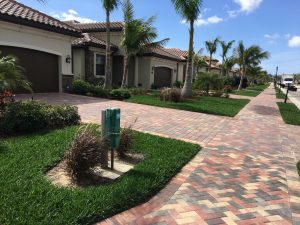
About the Author:
Jeff Juchnowicz
Jeff began working for his fathers pest control and fertilization company in 2004. During that time he studied under The Horticulturist, Will Strickland and his father who is a chemist and agronomist, Michael Juchnowicz. He was the youngest L&O Pest Control License holder in the state having passed the test directly after his 18th birthday. Soon thereafter Jeff went to FGCU to study Marine Science/Environmental Studies. In 2008 he moved from Sarasota to Naples/Fort Myers to start his own company which eventually became known as Terra Garden Solutions. With a focus on an unparalleled level of service and a resounding commitment to quality products, the company has grown leaps and bounds. Today you will find Jeff in his truck and monitoring properties we service. Occasionally you will see him out with his Yorkie dog Barkley, don’t be afraid to smile and say hey!
